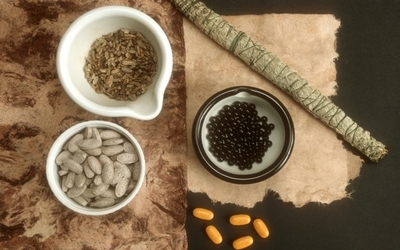Improve Your Wellness With These Simple, Herbal Remedies
Many people dismiss complementary therapies as mere quackery, ignoring the well-established benefits that many of them have for one’s wellness and wellbeing. The use of botanicals is actually very well rooted in medical practice. Going back to ancient times, doctors would collect information about herbs and collate detailed books about how to treat various ailments. Flash forward to modern times, and over a quarter of all drugs used in medicine contain active ingredients which have been derived from the same ancient plant.
It is thought that around 80 percent of the world’s population uses herbs in some area of their health care. In the United States alone, over 1,500 different types of botanicals are sold in the form of dietary supplements. The top-selling of these are herbs and supplements, including garlic, Echinacea, goldenseal, ginkgo, ginseng, aloe, saw palmetto, ephedra, cranberry and Siberian ginseng.
Before using any herb or supplement, however, you should consult a healthcare provider, to make sure that this is the most appropriate one for you to take, and that there are no interactions with other medications that you may be taking.
Chamomile is one of the most popular herbal remedies, frequently used to treat anxiety, muscle pain and cramping. It is usually ingested in the form of tea but is also used in combination with other herbs, too.
Echinacea is also commonly used, as it is believed to have properties that can help to fight off colds. People take Echinacea in the winter time, to help them boost their immune systems.
Ginkgo, also known as ginkgo biloba, is also commonly taken, as it is believed to improve the circulation and boost brain activity.
Those looking for a natural energy boost often turn to Ginseng. This herb has gained popularity in recent years.
Finally, the levels of use for St. John’s Wort remain high, as people use it to help treat their anxiety and depression.


Comments are closed.